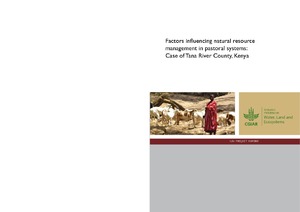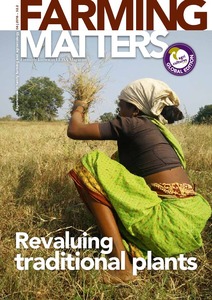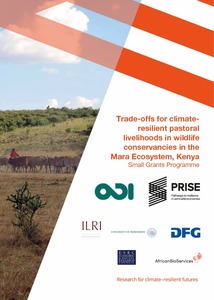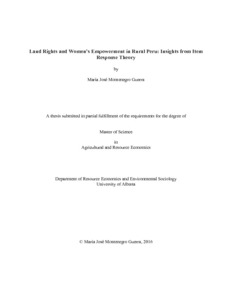Making millets matter in Madhya Pradesh
A decline in minor millet cultivation rings true across much of India. Yet a country wide revival of this cereal crop is in motion. Farmers are again recognising and asserting the value of minor millets, a cereal crop that was once central to their culture. A group of farmers in Madhya Pradesh have taken strength from farmers in Tamil Nadu who have successfully brought millet back into their fields, their homes and onto plates across their region. This is a story of how learning exchanges and partnerships support amplification of succcessful initiatives.
Trade-offs for climate-resilient pastoral livelihoods in wildlife conservancies in the Mara Ecosystem, Kenya: Small Grants Programme
Community participation in decentralized management of natural resources in the southern region of Mali
Decentralized governance of natural resources is considered one of the key strategies for promoting sustainable management of natural resources at local level. Effective decentralized natural resource management requires strong local natural resource institutions. Therefore, strengthening local institutions governing the management of natural resources is one of the core principles of decentralization reforms in Francophone West Africa countries.
Loi n° 2016-413 du 15 juin 2016 relative à la transhumance et aux déplacements du bétail.
La présente loi, composée de 35 articles repartis en sept (7) chapitres, définit les principes généraux et les règles en matière de transhumance et de déplacement du bétail.
Land Rights and Women's Empowerment in Rural Peru: Insights from Item Response Theory
Women’s land rights are increasingly advocated as an empowerment tool to spur development outcomes. However, empirical evidence of this relationship is limited. In this study we use data from peasant communities in rural Peru to explore the effect of the intra-household allocation of inherited land on women’s empowerment. Empowerment is modeled as a latent variable measured by different influence indicators using a Generalized Structural Equation approach.
Index Based Livestock Insurance in Kenya e-learning course introduction
Guideline No. 1 dated 9 June 2016 on the rules and procedures for examining and approving lease requests for the use of public pasture and forestry funds.
The Guideline provides for areas of the public forestry and pasture fund that may be leased according to the public competition/bidding procedures. The forestry authorities assess the forestry and pasture areas at the beginning of the year and submit the proposed list of leases to the municipality together with a detailed report on their potential use. The leases should comply with the law requirements regarding the allowed activities as well as the long- and short-term management plans.
Regulation No. 435 date 8.6.2016 amending and supplementing Regulation No. 1374 date 10.10.2008 on rules and rules of procedure for removal, addition, and change in the destination of the pasture fund.
Regulation 435 of 2016 amends and supplements certain definitions laid down in Regulation 1347 of 2008 as well as its sections 7, 12, and 17. According to the amendment, the line Ministry has to request a technical report from the municipality within one week of an application submission while the municipality has to respond and prepare a technical report within 10 days of the request. Further, the value of the removed pasture area has to be paid in full before the approval is issued.
Restauration des terres: Action contre la désertification
En 2016, Action contre la désertification se prépare à restaurer 10 000 hectares de terres et à planter des espèces d'arbres, d'arbustes et de graminées locales et bien adaptées localement dans six pays africains - le Burkina Faso, l'Éthiopie, la Gambie, le Niger, le Nigeria et le Sénégal.
Plateforme des Connaissances Pastorales: Faire entendre les voix des pastoralistes sur la scène mondiale
Plusieurs centaines de millions de pastoralistes de partout dans le monde comptent sur un riche héritage de connaissances et sur une tradition de mobilité pour survivre dans certains des environnements les plus rudes de la planète. Ils produisent de la viande, du lait et des fibres et fournissent des services écosystémiques essentiels. Pourtant, ils sont souvent incompris, marginalisés et exclus des décisions les concernant. La Plateforme leur donne une voix.






